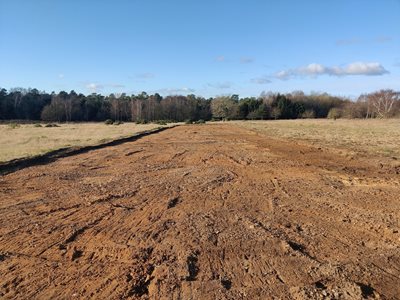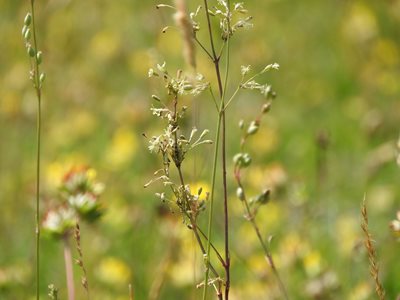This winter has proved demanding for our staff and volunteers. Heavy rain and high water levels across our reserves, particularly the wetland sites, has hindered much of the regular habitat management work. With dykes, scrapes and broads overflowing, work such as reed cutting and scrub clearance has been even more challenging than usual.
The seemingly endless winter storms have battered the coast, and erosion of Norfolk’s dunes and sandy cliffs is a continuing worry. With NWT Holme Dunes holding a significant portion of the UK’s Natterjack toads, along with many rare plants and invertebrates, this is of particular concern for us. However, the ‘new cut’ at NWT Cley and Salthouse has already proved its worth by improving drainage and allowing us to better manage saltwater inundation from rising sea levels and the more frequent storms.
Despite the weather, a lot has been going on since Christmas, and the New Year has started well. At Mere Farm, the Brecks team have been working on the rewarding job of planting trees. Joined by staff from our Woods and Heaths team alongside volunteers, they managed to plant over 1400 trees in just three days. Along with oak and hawthorn, native species planted included crab apple, blackthorn, spindle, buckthorn, dog rose, hazel and guelder rose.
Kyle stated that: “This was carried out as part of our Pool Frog Species recovery funding for the Mere Farm Project and these new blocks, adjacent to existing hedges and woods, connect up with the rest of the site and the Crow’s wood/ Stow Bedon Woodland area of Mere Farm.” This planting followed on from the ‘ghost pingo’ restoration work.
He continued: “After two years of planning it’s been really exciting to see the site start to take shape and many of the volunteers were excited about planting trees that will see the site flourish. This important neighbour to our pre-existing reserve at Thompson Common can now establish itself as species rich and connected habitat over the next few years, decades and centuries”.
The Brecks team have also been busy at the Cranwich Camp reserve, with soil scraping being undertaken with funding from Forestry England. The aim of this work is to increase the spread and resilience of specific Breckland Priority plants, particularly Spanish catchfly (
Silene otites).

New scrapes at Cranwich Heath
Kyle explained why this is such important work; “Spanish catchfly is a rare UK plant, but it has a real stronghold here at Cranwich Camp with probably the biggest population across the area. It favours disturbed ground and well grazed sward (short grass), so we use a digger and dumper to scrape the top 8-15cm of turf off, leaving the bare sandy/chalky soil. This means that early successional species have space to grow without battling courser grasses, and so have a better chance of setting seed. Overall, we created an additional 0.47ha of bare ground from this work.”
Bare ground is an important habitat feature for the large number of Breckland species that rely upon it, stone curlew being perhaps the most iconic. But it is also a measure to counter nitrogen deposition. A result of human activity such as pollution and agriculture, too much nitrogen in the soil has become huge ‘modern world’ threat to these rare and very special habitats. By removing nutrient rich soil, we can in part restore the conditions to allow these species to thrive.

The rare spanish catchfly
The last winter jobs will be concluding soon, as a warm spell in late February will likely see our reptiles and amphibians emerging from hibernation, and no doubt the first brimstone and peacock butterflies too.
Top tip for early spring: Norfolk holds a significant number of woodlark, so consider paying a visit to one of our heathland reserves to hear their beautiful song. Our Visitor Centre at
Weeting Heath reopens for the season on 16 March, with other recommended reserves being
East Wretham Heath,
Buxton Heath, or
Roydon Common.